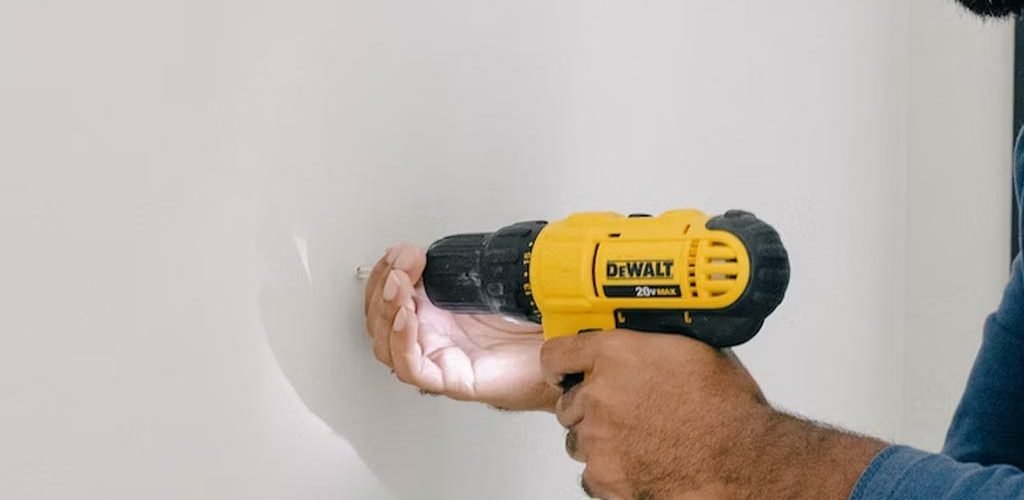Owning a home is a rewarding experience, but it also comes with responsibilities, one of which is the maintenance and repairs that inevitably arise over time. Whether it’s a leaky roof, a malfunctioning HVAC system, or a cracked foundation, knowing how to address these issues promptly and efficiently is crucial for preserving your home’s value and comfort.
Ignoring these problems can lead to escalated damage and higher repair costs. In addition, staying proactive about maintenance can help you catch minor issues before they turn into major headaches, saving you both time and money in the long term. Overall, by taking a proactive approach, you ensure your home remains a haven of comfort and security.
Here’s what you should do when your home needs repairs.
Table of Contents
Assess the Situation
The first step when you notice a potential issue is to assess the situation. Identify the extent of the problem and whether it’s something you can handle on your own or if professional assistance is required. If you’re facing a minor plumbing leak, for example, you might be able to fix it with a simple repair kit. More complex issues like electrical problems or structural damage may call for an expert. Making the right assessment not only prevents further damage but also ensures your safety and the long-term integrity of your home.
Prioritize Safety
Regardless of the type of repair, safety should always be your top priority. If you’re dealing with an issue that poses immediate risks, such as a gas leak or an exposed electrical wire, evacuate your home and contact the relevant professionals right away. Even for less urgent repairs, using proper safety equipment and following guidelines can prevent accidents and injuries. Remember, safety protocols may vary depending on the repair.
For example, when working with power tools during a DIY project, wearing protective gear like goggles and gloves can shield you from potential harm. Furthermore, staying informed about possible hazards related to the repair at hand ensures you take appropriate precautions.
Decide Between DIY and Professional Help
Deciding whether to tackle a repair on your own or hire a professional is a crucial choice. While DIY projects can save you money, they’re not always the best solution, especially if you lack the necessary skills. For example, repairing a tile roof might seem manageable, but improper repairs could lead to more damage. If you’re uncertain, consulting with experts who offer tile roof repair in Austin, or in your area, can provide valuable insights. Keep in mind, professionals bring years of experience and specialized tools to the table, ensuring the repair is done correctly and effectively.
Research and Gather Quotes
If you opt for professional assistance, research reputable contractors in your area. Get multiple quotes and compare their services, experience, and pricing. Of course, the cheapest option isn’t always the best; quality work is worth the investment. This step is crucial not only for ensuring a fair price but also for making informed decisions. Additionally, reading reviews and seeking recommendations from family and friends who have undergone similar repairs can help you narrow down your choices to the most reliable contractors.
Budgeting and Financing
Repairs can sometimes strain your finances, especially if they’re unexpected. Before proceeding, assess your budget and explore financing options if needed. Some repairs may be covered by insurance or warranties, so make sure to explore those avenues as well. Proper budgeting prevents financial stress and helps you plan for the repair’s impact on your overall financial situation. Moreover, establishing a dedicated emergency repair fund can provide you with peace of mind knowing that you’re prepared for unforeseen maintenance costs.
Communication and Updates
Maintaining clear communication with the professionals you’ve hired is essential throughout the repair process. Regular updates on the progress can help you ensure everything is proceeding as planned. If any unexpected issues arise during the repair, you can address them promptly, avoiding potential complications down the line.
In addition, open communication allows you to voice any concerns or preferences you might have, ensuring the repair aligns with your expectations. If you’re uncertain about the technical aspects of the repair, asking questions and seeking clarification from professionals can help you understand the process better and make informed decisions.
Preventive Measures
Once the repairs are completed, consider taking preventive measures to avoid future issues. Regular maintenance, such as annual roof inspections or HVAC servicing, can catch problems before they escalate. This approach not only saves you money over time but also helps you maintain a comfortable and safe living environment.
Additionally, proactive maintenance can extend the lifespan of your home’s systems and components, reducing the likelihood of major repairs in the future. Implementing routine upkeep also demonstrates your commitment to responsible homeownership, which can be particularly advantageous if you decide to sell your home, as potential buyers are often drawn to properties with a well-documented history of maintenance and care.
Wrap Up
Home repairs are a part of homeownership that can’t be avoided. By assessing the situation, prioritizing safety, and making informed decisions about whether to go the DIY route or hire professionals, you’re on the right track to resolving the issue effectively.
With thorough research, understanding contracts, and proper budgeting, you can navigate the repair process with confidence. Keep in mind, each repair you successfully tackle contributes to the overall well-being and value of your property. Furthermore, implementing preventive measures will help you keep your home in great condition for years to come.





